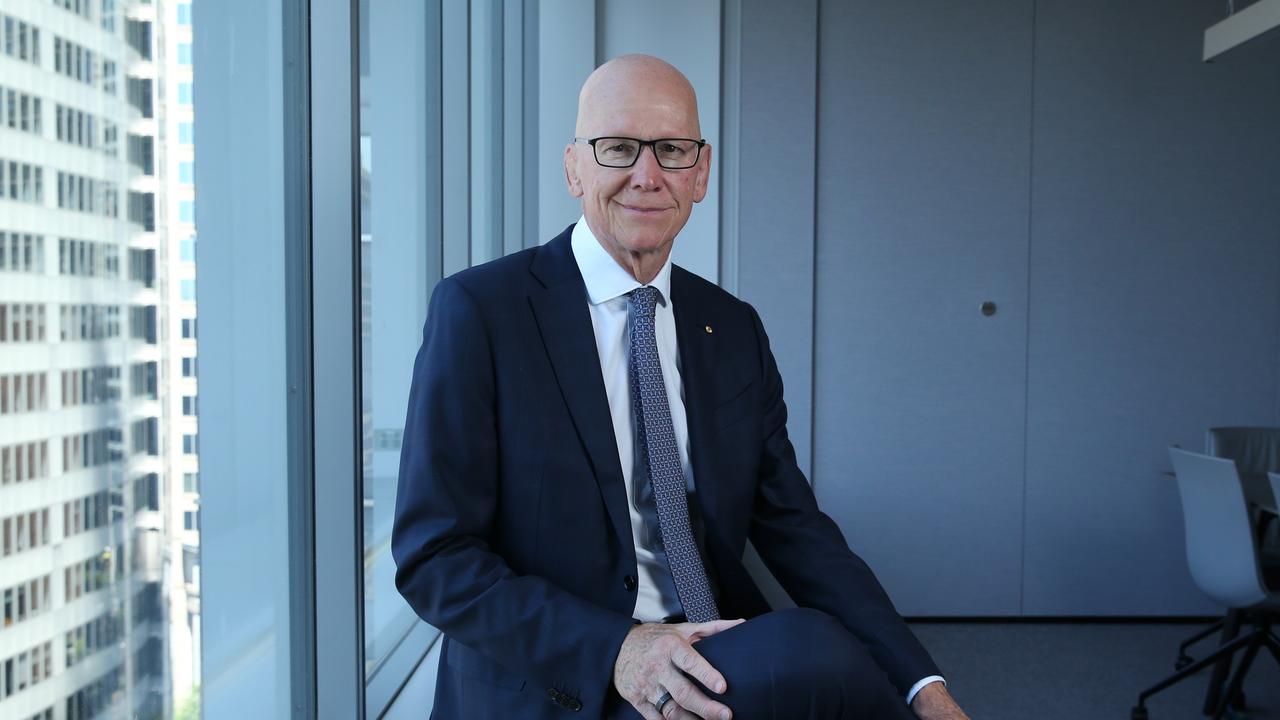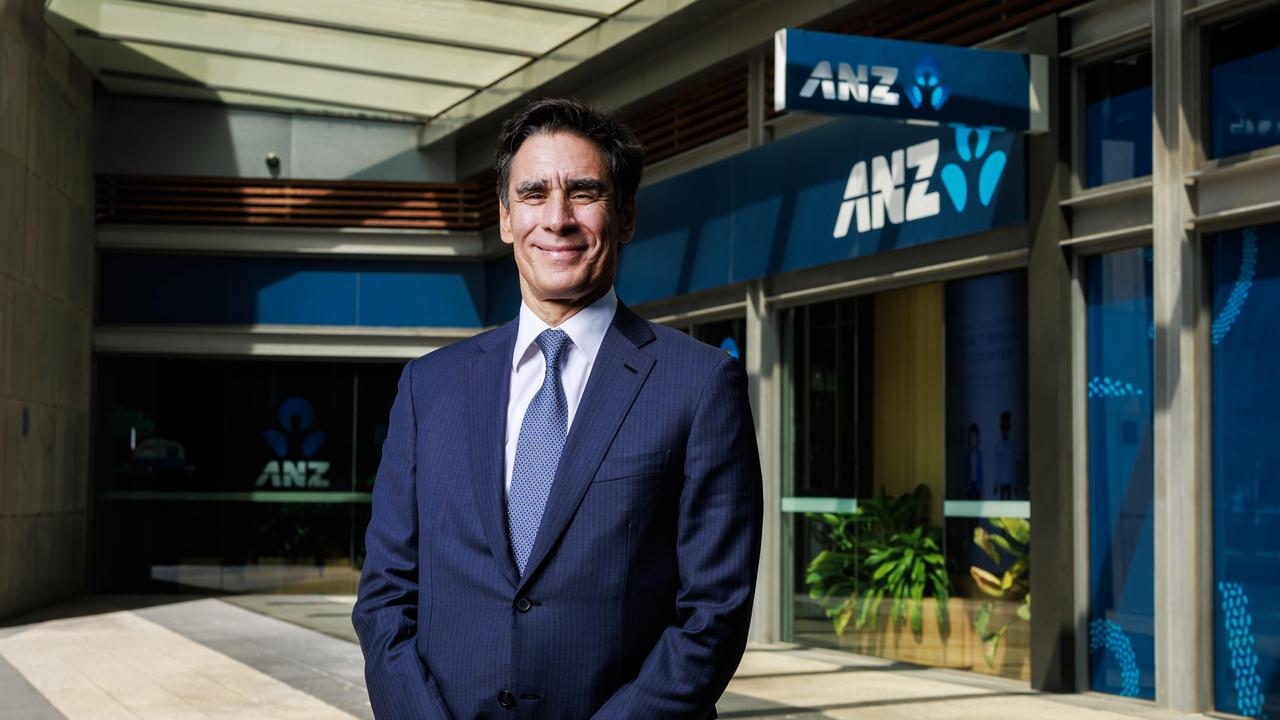The exit of Magellan Financial’s Brett Cairns elevates ‘key man’ risk for Hamish Douglass
Magellan co-founder Hamish Douglass casts a large shadow over the $116bn fund manager, and pressures after years of stellar growth are bubbling to the surface.
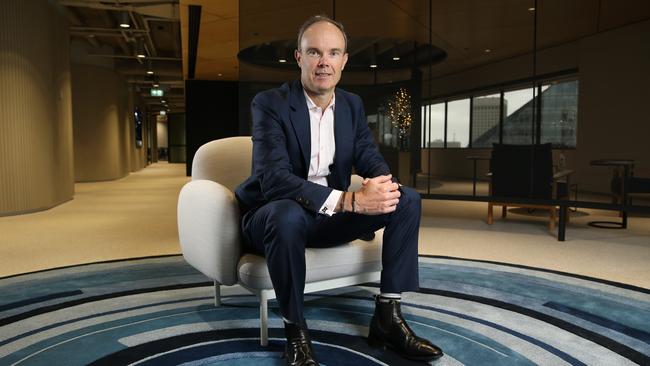
The pressures building inside Magellan Finance following years of stellar growth at the $116bn fund manager are bubbling to the surface.
The private life of co-founder and star stock picker Hamish Douglass has of late become very public, including a weekend profile about his health regime and acknowledgment of a nearly four-month working trip outside Australia which included stints in London and Europe.
The overseas adventure, which the funds house was not keen to publicise when Douglass was presenting full-year results from London in August, also coincided with a period of fund outflows – a rare thing for Magellan in recent years. However, it was also a chance for Douglass to catch up with offshore investors in the funds after the near two-year interruption of Covid.
Monday night’s sudden exit of long-serving Magellan chief executive and Douglass family friend Brett Cairns has now elevated “key man’’ risk at the fund manager to red-hot levels.
Cairns, the low-profile boss of Magellan, resigned immediately on Tuesday citing personal reasons. While the company was not specific, the move is understood to be linked to corporate culture. The former Merrill Lynch and Babcock and Brown banker joined Magellan initially as a director in 2007 before moving into an executive role in 2015.
Disclosure surrounding the nature of Cairns’ exit falls well short of an ASX 100 company and the standards the fund manager would expect of its investments. By contrast, the much smaller Bapcor on Monday gave investors more detail the sudden departure of its chief executive David Abotomey, citing tensions between management and the board.
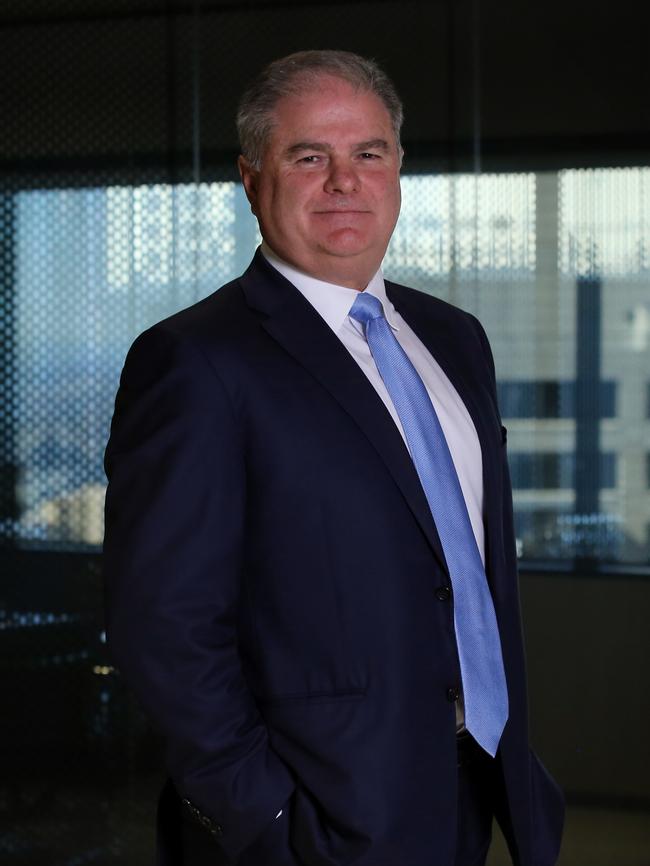
Cairns, who last year was paid $2.5m, was deeply involved in the launch of retirement products across Magellan, diversifying away from the core funds arm. This included the launch of listed exchange-traded funds. Magellan now has nine active ETFs with total funds under management of $16.3bn held by some 60,000 unit holders. These funds become an entry point to sell more Magellan products to investors.
Magellan chief financial officer Kirsten Morton has been named as interim chief executive. Morton has been in her current role for more than eight years, offering some continuity.
Douglass casts a massive shadow over Magellan – he remains in the multiple roles of executive chairman, chief investment officer and lead portfolio manager. The former investment banker is the driving force and investor fortunes are clearly tied with his performance.
A bad period for the 53-year-old will be felt by many inside Magellan’s funds as well as investors in the company. Likewise, any sudden exit or change of pace could leave the business in a strategic funk.

At the same time Douglass’s family stake in the company, held under the name of Midas Touch Investments, is significant. At Tuesday’s close it was worth $650m.
Comparisons are often made with Kerr Neilson, who co-founded rival funds house Platinum Asset Management and remains inextricably linked to the business. A decision by Neilson in 2018 to step back from the day-to-day investment decisions and into the boardroom spooked investors.
Focus on this looming risk saw shares in Magellan on Tuesday drop 6.4 per cent to close at $29.10 – the lowest since February 2019.
As the company gets bigger, the blurred lines of accountability inside Magellan also pose questions over how a longer term underperformance plays out.
Who is responsible if investment returns turn bad? The chairman, who also happens to be lead portfolio manager? Or the chief executive?
And who is on the hook for strategic investment decisions, including $156mspent on banking start-up Barrenjoey, although Magellan points out this business is already profitable.
In the boardroom the focus now sits with deputy chair Hamish McLennan – also chair of REA Group – to challenge Douglass around governance.
Outside the boardroom co-founder Chris Mackay has effectively been more hands-on in recent months, including providing greater management oversight for the funds business.
Tensions have existed between Douglass and Mackay over time, but the relationship is said to be highly professional.
If Douglass was to take extended leave, those inside the company say Mackay, the former UBS investment banker, is entirely capable of stepping into an expanded role.
Back in 2006 Mackay was instrumental in getting James Packer to back the $378m listing by taking a 16 per cent stake. The Packer name (held under Consolidated Press and which has since been sold down) was useful in drumming initial interest in the Magellan family of funds.
Those who have worked with Douglass know he can be prickly, but that is not unusual for star fund managers to come with demanding personalities.
The optics of Cairns’ exit also coincides with the underperformance of funds. Magellan’s global fund delivered returns of 10.8 per cent over the past year, substantially lagging its benchmark, the MSCI World NIR Index, which delivered 27.5 per cent.
Over five years returns of the global fund have tracked the index. Douglass recently pointed out that since inception the fund has returned 11.9 per cent compared to 7.7 per cent for the MSCI benchmark.
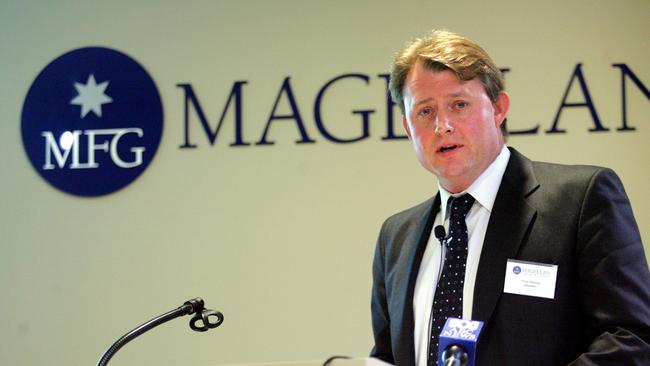
Magellan’s flagship global fund holds up to 40 stocks with key stakes in Microsoft, Alibaba, Facebook and Alphabet.
In a recent investor update Douglass said the market environment over the last 12 months was “not conducive to the lower risk nature of Magellan’s Global Equities strategy”.
Magellan was sitting on $116.4bn of funds at the end of November. Net flows were positive last month, offsetting the trend of net outflows in recent months – including the $1.5bn hit in September as three fund managers pulled funds.
Brokerage UBS on Tuesday noted Magellan’s global funds had a further $560m in outflows during November.
Infrastructure had $880m inflows while the Airlie Funds arm had $40m in outflows.
Way back at the launch of Magellan Financial in 2007 Douglass cited value investing guru Benjamin Graham as a guide for his stock picking strategy.
“In the short run, the market is a voting machine but in the long run it is a weighing machine,” he said.
On Tuesday’s performance alone Douglass was starting to lose ground.
johnstone@theaustralian.
com.au



